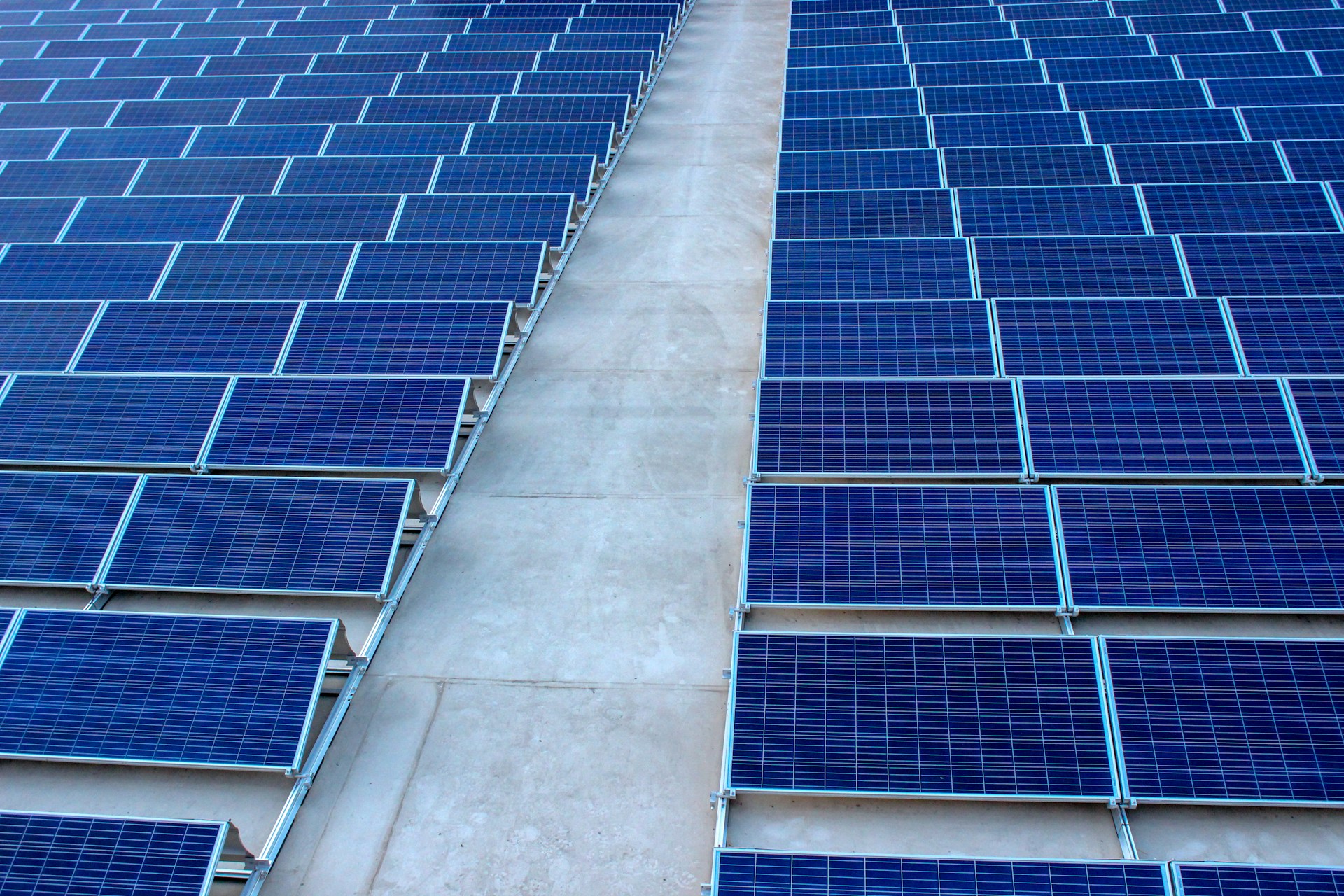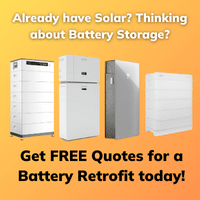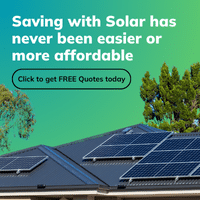How Aussies have embraced solar energy has been nothing short of remarkable, with an increasing number of homeowners turning to solar panels to power their homes sustainably.
As the demand for solar grows, one critical decision looms large for prospective solar enthusiasts: should you lease or buy your solar panels?

The difference between leasing and solar finance options
Many people are under the impression that leasing and financing solar panels are the same thing. That is not the case.
Solar leasing involves renting a solar panel system from a third-party leasing company, with minimal upfront costs. In this situation, the leasing company will maintain its ownership and responsibility for maintenance.
On the other hand, solar financing is about taking out loans or using financing options to buy solar panels outright, gaining ownership and responsibility for maintenance.
Whilst leasing offers lower initial expenses and limited customisation, financing provides ownership benefits, potential long-term savings and the ability to customise and upgrade their solar systems as needed.
Ready to upgrade your solar systems and take your energy savings to the next level? Embrace the energy efficiency revolution by upgrading your solar systems and adding a battery, solar inverters + more with Energy Matters. Energy Matters has been recognised for our continued excellence in the Australian solar industry. We provide our customers with high-quality resources, insight, and access to reputable solar quotes.
With Energy Matters’ 3 free solar quotes, you can compare plans from pre-qualified and vetted installers in your area and find the perfect solution for your home and business. Harness the sun’s power and save money on electricity bills while reducing environmental impact. Let Energy Matters guide you towards a brighter, more sustainable future.
Financial comparison of solar leasing vs. purchasing
The decision to lease or purchase solar panels is significant for Australian homeowners and businesses, with financial implications spanning several years. Understanding the nuances of solar leasing vs. purchasing is crucial to making an informed choice that aligns with your long-term goals.
Solar leasing offers a low or no upfront cost, making it an accessible option for those with limited budgets.
Monthly payments are typically fixed, simplifying financial planning. However, you don’t own the solar panels, limiting potential long-term savings and eligibility for government incentives. Additionally, lease terms can be lengthy, and early termination often incurs penalties.
Solar purchasing requires a substantial upfront investment but provides full ownership of the system. This allows for maximum financial returns through energy bill savings, potential feed-in tariffs, and asset appreciation. While upfront costs can be high, various solar finance options, such as solar loans and power purchase agreements (PPAs), can make ownership more feasible.
Ultimately, the best choice depends on individual circumstances, including budget, financial goals, property ownership, and the time you plan to stay in the property. Carefully considering the pros and cons of each option and seeking professional advice can help you make a well-informed decision.
Understanding solar leasing
There are two options for solar power lease in Australia—one is you can lease solar power systems directly from a third party or sign a Solar Power Purchase Agreement (PPA).
PPAs: What you need to know
Leasing through PPA involves agreeing to buy energy generated by the solar power system installed on your home or business. Some companies let users choose from several options, whilst others only provide one option.
You can read more about PPAs on our page here.
What to expect from leasing solar panels
If you choose to lease solar panels, the process starts with an assessment of the property to determine its solar potential. Upon completion, the solar panels will be installed.
Make sure to read the fine print before you sign a lease. The agreement outlines the terms and conditions, along with the duration and monthly payment structure.
Why you should lease solar panels
There are several reasons a lease is a good idea. One is it has significantly lower upfront costs. That’s why it makes a lot of sense to those who can’t make a substantial initial investment in solar panels.
As mentioned, leasing means paying a monthly fee for the use of the solar panels. The fee is usually structured to be lower than the combined costs of your previous energy bills and the monthly lease payment, resulting in significant savings.
Solar panel leasing typically comes with maintenance and monitoring services. This means that you will not be responsible for the routine upkeep of the solar system. Most companies also offer comprehensive warranties that cover equipment and performance.
However, it’s necessary to be thorough when reviewing the warranty terms to understand the extent of coverage. There are some that may include clauses that require adherence to specific maintenance practices to remain valid.
Why leasing solar panels may not be a good idea
One notable drawback of leasing solar panels is the limited customisation options available. Since the system is owned and operated by the leasing company, some may have restricted control over system upgrades or modifications.
Additionally, this lack of ownership may pose challenges for those who want to expand their solar capacity or add new technologies to their system. You may have to pay an early exit fee if you wish to sell your home or business during the term of the lease. Many factors need to be considered before opting into a lease.
Pros | Cons |
Lower upfront costs | No ownership of the system |
Often includes system maintenance and monitoring | Limited control over system upgrades or modifications |
Potential for immediate energy bill savings | Potential for higher long-term costs compared to purchasing |
May not qualify for government incentives |
Buying solar panels with or without financing
Buying a solar system is a whole different journey compared to leasing, offering home and business owners a sense of ownership and long-term control over their energy production.
What to expect
The process kicks off with a consultation with a solar provider who assesses your energy needs, roof condition and available space for solar panels. It involves detailed discussions on system size, efficiency and potential energy production to ensure the solar solution fits your unique requirements.
Upon finalising the purchase, the solar panels will be installed on the home or business owner’s property.
Those who choose to buy solar panels can also explore their financing options. You can read more about solar financing here.
Why you should buy solar panels
One of the biggest benefits of buying a solar system is that you gain full ownership, which also adds to your home or business equity.
This also allows you full control over the system, allowing for upgrades, expansions and customisations. Being able to customise your system to your specific energy needs and preferences is a significant advantage.
Another reason buying solar panels is a good idea is that you can choose maintenance services and schedules that align with your needs. You also get direct control over warranty-related decisions.
Why you shouldn’t buy solar panels
The biggest challenge of buying solar panels is the substantial upfront investment. There is also the ROI; whilst savings accumulate over the years, the ROI is realised gradually. Though the average return on investment for a residential home is between 3 and 5 years.
When it comes to maintenance, owners need to budget for additional costs. Rapid advancements in solar technology should also be considered as they may make current systems less advanced over time.
Pros | Cons |
Full ownership of the system | Significant upfront costs |
Potential for higher long-term savings | Responsible for system maintenance and repairs |
Eligibility for government incentives and rebates | Potential for fluctuating electricity prices |
Increased property value |
Financial considerations for leasing or buying solar panels
Deciding between leasing and buying solar panels boils down to your wallet. Leasing means small upfront costs and regular payments whilst buying needs a big upfront payment but promises long-term savings.
To figure out which makes more sense, look at the total cost of ownership, see when you start saving money (ROI), and check out financing options. Leasing gives quick savings, but the long-term gain might not be as much.
Buying means a slow gain over time, but there could be perks like government help. Think about how much energy you use, grab government deals, plan for the future, and decide how much risk you’re ok with.
Figuring this money stuff out helps you make a smart pick for your home. In the next parts, we’ll chat about how both options treat our planet, so you can make an eco-friendly choice too.
The right solar choice for you: Should you lease or buy your solar panels?
In the radiant world of solar energy, the decision between leasing and buying solar panels in Australia is a journey through costs, ownership, and sustainability. Whether you opt for the ease of leasing with lower upfront expenses or embrace the ownership perks of buying, understanding the financial landscape is key.
As you embark on this solar adventure, consider your energy needs, government incentives, future plans, and risk tolerance. Your wallet and the planet will thank you for making an informed and eco-friendly choice.
Energy Matters has over 18 years of experience in the solar industry and has helped over 40,000 Australian households in their journey to energy independence.
Complete our quick Solar Quote Quiz to receive up to 3 FREE quotes from trusted local installers – it’ll only take you a few minutes and is completely obligation-free.








































